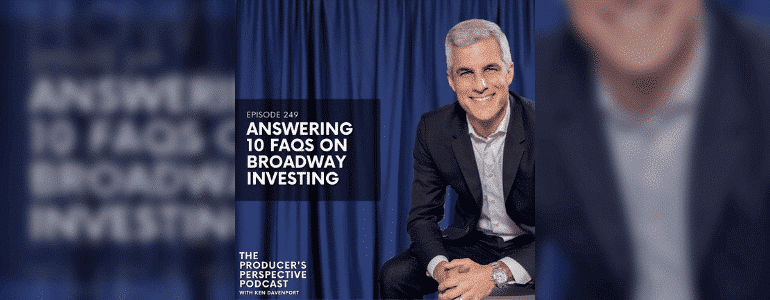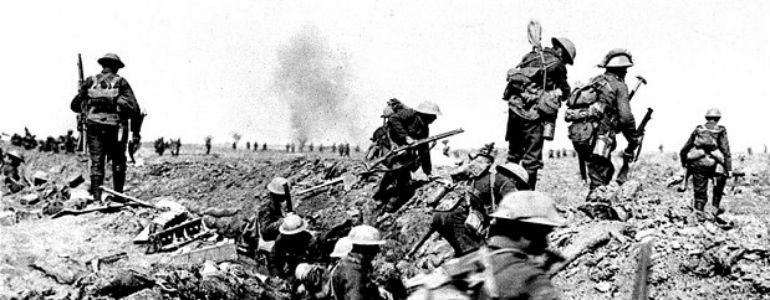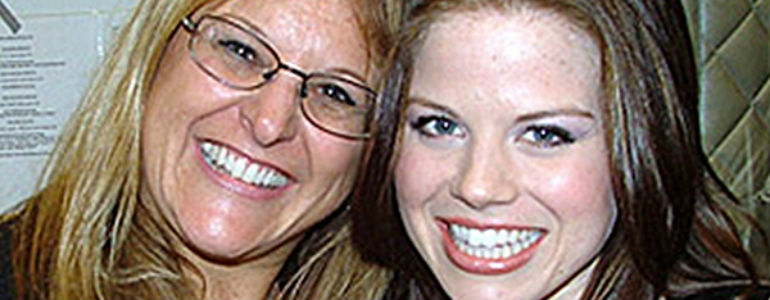10 Qs for a Broadway Pro: Driving Miss Daisy Director David Esbjornson
The first play of the Fall to announce that it recouped wasn’t Merchant of Venice. It was the much sweeter and smaller Driving Miss Daisy, which was helmed by David Esbjornson. David has directed just about everywhere, from London, to Broadway, to just about every major regional theater across the country.
And just yesterday, The Public tapped him for Measure for Measure in the Park this summer.
On top of his talent, David just happens to be one of the nicest guys in the business, which is why stars like Vanessa Redgrave and James Earl Jones want to work with him.
But today he’s working with us, answering our 10 Qs. Take it away, David!
1. What is your title?
Stage Director and Producer
2. What shows are you currently working on?
I’ve just opened Alfred Uhry’s Driving Miss Daisy with Vanessa Redgrave, James Earl Jones and Boyd Gaines on Broadway and I’m preparing for Shakespeare’s Measure For Measure with the New York Shakespeare Festival in Central Park
3. In one sentence, describe your job.
I interpret, develop and present plays.
4. What skills are necessary for a person in your position?
A love of theatre, practical intelligence, intuition, a perception of human motivation and behavior, an ability to stay focused and organized, empathy, a real interest in collaboration, a need to break rules and a “thick” skin.
5. What kind of training did you do to get to your position?
I worked as an exterior painter, a carpet cleaner, telemarketing interviewer, furnace cleaner, farm worker, retail clerk, Christmas tree decorator, building handyman assistant, apartment renovator, waiter, bartender, silk-screen printer, teacher for “problem teenagers”, floor sander and as a display artist. Plus, an undergraduate degree in Theatre and English Literature from Gustavus Adolphus College and an MFA in Directing from New York University.
6. What was your first job in theatre?
My first truly professional job was actually part of a program entitled “The New Director’s Project,” produced by New York Theatre Workshop. The fee was only seven hundred dollars but it allowed me to work on a level I had not yet experienced. It also provided me the great luxury of being completely supported for the first time. The play, translated from German, was called Farmyard, written by Franz X. Kroetz. The text prescribed a very spare, harsh and unforgiving world. As a director, the play required a super sensitive attention to detail. For my production, I personally provided the “live” kittens, the “farm dog” and the disgusting toilet for the “masturbation scene.”
7. Why do you think theatre is important?
The majority of our culture might argue that it isn’t. I guess I believe that theatre can provide important insights about our own lives and the lives of others. It’s a public connection to one another that lets us celebrate what it means to be human. It can also be a cultural tool for learning that when done well, can occasionally transform a receptive individual’s thinking and personal growth.
8. What is your profession’s greatest challenge today?
The greatest challenge, in my opinion, is the enormous financial barrier of ticket cost that prevent an average individual from having an important, and perhaps meaningful, experience in the theatre.
9. If you could change just one thing about the industry with a wave of a magic wand, what would it be?
Taking away the financial pressures on producers that limit the kind of work that can be presented–that hampers opportunity for new talent and limits the demographics of the theatre audiences.
10. What advice would you give to someone who wanted to do what you do?
Ask yourself if “deep down” you have the talent to succeed and if the answer is “yes” then decide how much you are willing to personally sacrifice while working tirelessly to achieve those ambitions.
I also believe you should embrace interesting work whenever it presents itself and refrain from judging where that work might originate. Some of the most meaningful artistic experiences come out of the least likely circumstances.
You must also acknowledge and be sensitive to the shifting needs within your life. You aren’t much good as an artist if you ignore yourself and those around you. At the same time, you might have to balance this with openness to unique opportunities that may present themselves to you at the most inconvenient times.
– – – – –
Enter to win this Sunday’s Giveaway: 2 Tickets to Catch Me If You Can! Click here.
Podcasting
Ken created one of the first Broadway podcasts, recording over 250 episodes over 7 years. It features interviews with A-listers in the theater about how they “made it”, including 2 Pulitzer Prize Winners, 7 Academy Award Winners and 76 Tony Award winners. Notable guests include Pasek & Paul, Kenny Leon, Lynn Ahrens and more.















